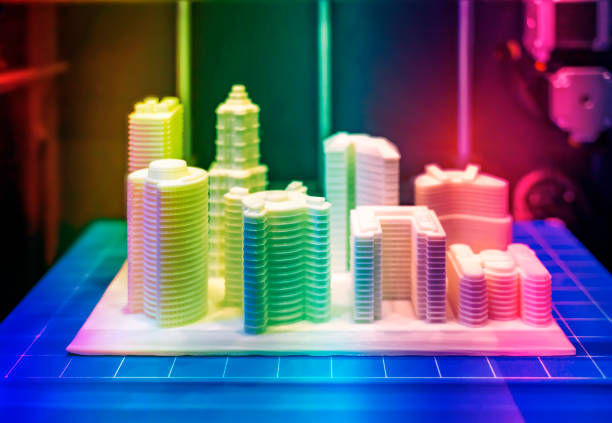Things To Take Into Consideration When Buying A 3d Printer

3D Printing is revolutionising the manufacturing industry. Experts consider
it to be a disruptive technology and predict that it will soon be widely
adopted. However, it could still prove difficult for decision-makers to make a
purchasing decision. Managers don't know the major elements to be considered
when buying an commercial 3d printer and consequently make poor buying
choices.
There are numerous 3D printer options available that only increase the
difficulty of choosing the most appropriate one. Many technologies have been
developed for specific purposes of 3D printing. However, this is a broad term.
An industrial 3D printer is not suitable for dental uses and the reverse is
true.
We've put together an industry-leading list to help you select the right 3D
printer to meet your requirements. These can help you choose the most suitable
3D printer for your needs.
Application
The most important factor to take into consideration when purchasing a 3D
printer is to inquire about the core application of 3D printing for your
purpose. Are you planning to use it for hobby or home use, prototyping at work,
industrial, or specialised reasons like jewellery, dentistry and gifting. A lot
will depend on this element. Different technologies work for different
applications. Selecting the best printer for your project will make 3D printing
effortless process.
Material Compatibility
When purchasing an 3d printer under
100 product, it is essential to consider compatibility with the material.
The item should be 3D-printed using the right technology if it's going to be
used in a particular application. The material must possess the necessary
properties to meet the specifications.
Build Volume
The build volume is simply the area of printing. The printer should be
selected taking into consideration the size that is most commonly used to be
printed. It is not possible to purchase a huge printer that will take on all
sizes of prints. The cost of printing increases and could influence the quality
of prints that are delicate. If you require large prints in smaller quantities
and are outsourced, they may be.
SLA/DLP printers, as an example, are much smaller than other build volumes.
If you require larger prints then an SLA printer will not be worth the price. A
FDM or SLS printer that has greater size could print a part that is slightly
rougher than normal. This can be post-processed to create a finer appearance.
The appropriate trade-off has to be achieved while making such choices.
Material Availability and Cost
The library of materials for nearly all 3D printing technology is expanding
daily. But still the material properties differ for each technology. You can
decide which one is the best one for you by taking a close look at the
components you'll be printing in the future using your 3D printer.
FDM filaments can be found everywhere in the world at affordable prices.
However, certain materials like flame-resistant polymers and metallic materials
may not be available and may require significant time to obtain, which can
increase the time to lead and the cost.
A 3D printer's material costs can also be important as it could affect the
cost of prototyping. The materials used in DMLS/SLM techniques are expensive and
for some industries it may not be justified to use metal 3D printing as the
material cost is higher. The powdered materials also have a short shelf life.
The powder isn't able to be reused after it's been through at least 4 to 5
printing cycles.
Resolution
Resolution can have a direct impact on the printing of small features and
finishing of the printed item. A 3D printer Files printer with a high resolution
can print the smallest of features. The layers will be smaller leading to a
smooth surface with a smooth finish. A 3D printer that has a higher resolution
is beneficial in the long run.
Additional Considerations to Make When purchasing a 3D printer
One color or full-color
Although this may not be the primary factor to consider when buying the 3D
printer, it is likely to be very helpful in the event that you plan to print 3D
characters, figurines or selfies. This will help you avoid the process of
colouring if your final product requires a post-processing work.
Proprietary Slicing Software Application
Many of the well-known 3D printer manufacturers have their own slicing
program. The advantage is that these programs are completely compatible with
their 3D printer and as a result you'll always get excellent print
results.
You shouldn't rely on the proprietary software if you don't have your own
slicing software. They are fantastic however, they're not calibrated to your
particular 3D printer. 3D Printers from brands such as Ultimaker, MakerBot,
Formlabs and many other brands also offer their software suite along with their
3D printers.
Conclusion
It isn't easy to purchase the right 3D printer, especially for those who aren't familiar with the technology. Many people end up buying the wrong printer for their particular use.
Comments
Post a Comment